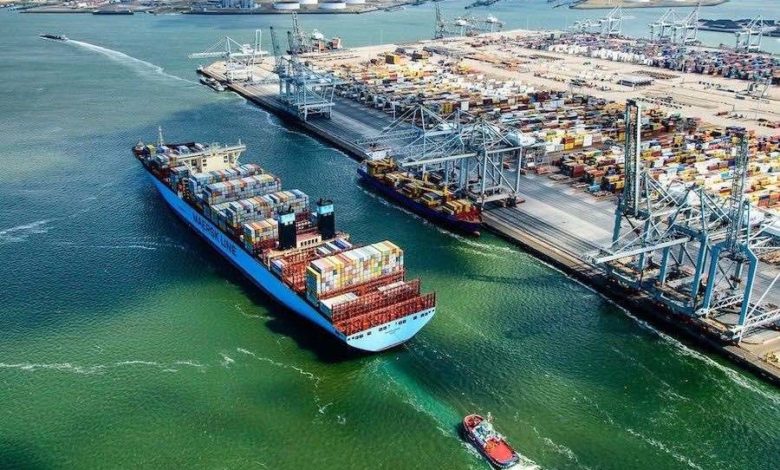Shipping joins producers to scale up green hydrogen-based fuels this decade

Organisations and initiatives across the shipping value chain, joined by some of the top producers of green hydrogen, have signed on to a joint statement at COP27, committing to the rapid adoption of green hydrogen-based fuels this decade.
The signatories have agreed to work on commercially viable zero-emissions vessels operating on the deep seas by 2030; scale up production of green hydrogen to 5.5m tons per year by 2030 for use in shipping; and complete decarbonisation of the shipping sector by 2050 at the latest.
The joint statement on “Green Hydrogen and Green Shipping,” facilitated by the UN Climate Change High-Level Champions and nonprofit RMI, was signed by representatives of the Aspen Shipping Decarbonization Initiative, the Getting to Zero Coalition, the Green Hydrogen Catapult, the Green Hydrogen Organization (GH2), ACWA Power, A.P. Moller – Maersk, CWP Global, Fortescue Future Industries, InterContinental Energy, and MAN Energy Solutions.
“Our path ahead is clear: shipping must transition away from fossil fuels and toward scalable zero-emissions fuels. Members of the Getting to Zero Coalition and other signatories to this joint statement stand firmly behind this goal and have already taken crucial first steps to make this happen. Commitments today show that there will be a sufficient supply of green fuels and demand for zero-emissions shipping,” said Johannah Christensen, CEO of the Global Maritime Forum, founding partner of the Getting to Zero Coalition.
By bringing suppliers and consumers of green hydrogen into agreement about the urgency of the technology’s adoption in shipping, the joint statement aims to build confidence for the deployment of low-emissions fuel at scale to unlock cost reductions and reduce investment risk.
“We are living in a climate emergency, and we need to rapidly accelerate the global availability of green fuels,” said Henriette H. Thygesen, CEO of fleet and strategic brands at A.P. Moller – Maersk. “Access to green hydrogen is an important pathway to secure this important scale-up for the shipping industry as a whole and for us at A.P. Moller – Maersk to reach our 2040 net-zero target.”
“This is a target that we can reach. In fact, achieving existing targets set by Green Hydrogen Catapult members alone would be enough to supply nearly 90% of the green hydrogen needed by the shipping sector by 2030,” stated Oleksiy Tatarenko, senior principal at RMI and secretariat of the Green Hydrogen Catapult, a coalition of green hydrogen producers and first movers committed to mobilising production and demand of the low-carbon energy source in this decade. “To make it happen, we need, among other things, to triple down on planning for green shipping corridors as fuels are supplied in specific places.”
Alex Hewitt, CEO of global green hydrogen developer CWP Global and current chair of the Green Hydrogen Catapult, added: “This is a significant step forward for the green hydrogen and shipping industries. We are pleased to bring the heft and commitment of the Catapult companies to accelerate progress this decade toward zero-emissions shipping.”
The signatories called on international authorities and national governments to support private-sector commitments with correspondingly ambitious policy. The joint statement specifically asks the International Maritime Organization and member states to commit to a 100% emissions reduction for the maritime sector by 2050 with interim targets to incentivise at least 5% zero-emission fuels use by 2030.
“To take this further, we need fast and bold action by policymakers to develop an ambitious and supportive policy framework that accelerates this transition, without which the maritime industry alone cannot achieve full decarbonisation by 2050,” Johannah Christensen of Getting to Zero Coalition added.
